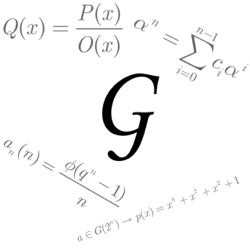reposted from: http://news.bbc.co.uk/1/hi/technology/6989327.stm
 Social networking has extended friendships around the globe |
![]() When BBC reporter Michael Buerk brought us film of the starving children of Ethiopia in 1984 it motivated the country to action.
When BBC reporter Michael Buerk brought us film of the starving children of Ethiopia in 1984 it motivated the country to action.
In 1985 Bob Geldof and Midge Ure's Live Aid raised millions of pounds, and the attendant publicity put humanitarian aid onto the agenda of the senior politicians of the day, forcing Prime Minister Margaret Thatcher and her Foreign Secretary Geoffrey Howe to take seriously an issue which they had not, hitherto, seen as a high priority.
Twenty years later Geldof was at it again, though the cultural and political impact of Live 8 was diminished for many by the sight of too many millionaire rock stars seeking to revive their careers on the back of the world's poor.
But something else had changed. In 2005 we didn't need the Six O'Clock News to bring us pictures from Darfur or Bangladesh, and we didn't need the journalistic talents of Buerk and others to tell the stories in a way that made it impossible not to respond.
The internet, through the web, instant messaging, email and its other applications, had brought the world into our living rooms - and our offices, classrooms, cafes, clubs, bars and railway carriages.
The last decade of the twentieth century saw a transformation in the forms of communication available to the lucky billion with easy access to the network, and the impact on the way we perceived the world was immense.
Greater understanding

Those new technologies kept me glued to my computer in Cambridge on that sun-filled New York morning six years ago when the Twin Towers fell, watching the TV feed, reading the news websites and talking online with friends in London, the USA and elsewhere.
Richard was in Sydney, Australia, but his colleagues from the US office worked in the World Trade Center, and I shared his concern and grief, telling him what I could learn from the BBC and other sources unavailable to him.
Now the power of that technology is even greater, and its impact on the way we understand the world will go far beyond letting us see our holiday destinations on Google Earth or finding the best bar in Brooklyn via Steven Johnson's outside.in.
The world wide web has always been about more than just online publishing and Tim Berners-Lee, its inventor, has often spoken of its importance in promoting greater understanding between people.
Now the growth of online social networks is transforming the web's ability to teach us about one another, not in broad terms but as individuals, with our hopes, aspirations and separate but equally important lives.
I have 332 Facebook friends, which my girlfriend claims makes me a 'facebook tart'. It's true that
a significant number of them are people I have never met and am unlikely ever to bump into, but that doesn't mean that I can't enjoy being part of this disparate social network, or enjoy knowing who is reading what, which events they are attending or what their problems and triumphs are.
The people I see and chat to on Facebook, and on MySpace and Orkut and the other social sites I belong to, are real people.
New friends
![]()

![]() The distribution of my friends reflects the distribution of the network
The distribution of my friends reflects the distribution of the network ![]()
I share in their daily lives, and learn something of what it is like to be an expatriate Iranian in Canada (hi, Hoder), or a Delhi blogger like Amit or a Nigerian journalist like Edetaen.
The distribution of my friends reflects the distribution of the network and of the advanced technology needed to post on a blog, chat online or maintain a profile on one of the social sites, but it is already changing as the technology spreads further.
Smartphones, perfectly capable of accessing Facebook, are spreading through sub-Saharan Africa as people realise that they are cheaper, easier to operate and more usable than desktop PCs.
Eventually, the people with the phones are going to start using these new sites, and I imagine many more listeners to the BBC's Digital Planet - a radio programme devoted to the way technology touches lives around the world - will come online and join in the conversation. As one of Digital Planet's regular contributors, I hope some of them will add me as a friend on one of the social sites.
Students coming back to UK universities from gap years abroad will find that their friend lists include mates from Somalia, Siam and Syria, and anyone with even a passing interest in global politics will find that their friendship networks cover the globe.
What will happen when these people start dying in famines or wars, or when the climate changes caused by global warming lead to floods and droughts and natural disasters?
What happens when the photos on Facebook and Flickr show devastated crops and starving families - and these people are not just faces on the television but old friends, people whose likes and dislikes and reading habits and favourite films we know and share?
The world is different when it's the people you know, and I do not think we will be able to resist the forces of change when our friends are dying on screen, in front of us, and we know that we could do something but have decided not to.
Bill Thompson is an independent journalist and regular commentator on the BBC World Service programme Digital Planet.


 March to the Labour Party Conference! No more wars.
March to the Labour Party Conference! No more wars. 




























